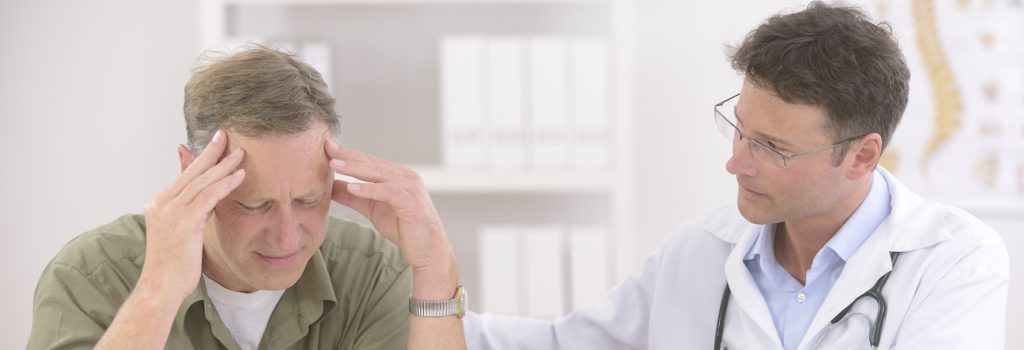
Opiate Addiction Treatment
Opiate Addiction Treatment of Addictive and Dangerous Drugs
Table of Contents
If you or someone you care about is facing opioid addiction, you’re not alone. We understand that opioid addiction is a challenging and complex problem affecting individuals from all walks of life, regardless of age, gender or background. Whether naturally derived or synthetic, opioids are highly addictive and dangerous when not used properly. Even when a prescription is carefully followed, their potency increases the likelihood of misuse, addiction and overdose.
According to the Centers for Disease Control (CDC), more than 128 people per day in the United States die from an opioid-related overdose. That adds up to an alarming 46,720 per year. In Arizona, more than 5 people die every day from opioids. To combat this, a 2017 statewide public health emergency was declared to reduce opioid deaths, but addiction treatment remains one of the most effective ways to help prevent this unfortunate outcome.
At Emerald Isle Health & Recovery, our goal is to help people overcome opioid addiction and live a healthy life with personalized treatment plans that fit their unique needs. We utilize evidence-based techniques, flexible programs and comprehensive mental health care to help individuals address every aspect of their addiction and uncover the underlying causes that keep them trapped so they can build a strong foundation for lasting recovery.
Immediate Placement in Opiate Rehab
WHAT ARE OPIOIDS?
Opioids are a class of drugs primarily used for pain relief. Opioids include naturally derived and semi-synthetic opiates such as morphine, opium and heroin, as well as prescription painkillers like OxyContin (oxycodone), Vicodin (hydrocodone) and Dilaudid (hydromorphone).
Opioids work by binding to certain receptors in the brain to produce feelings of euphoria, pain relief and relaxation. While opioids can be effective in managing pain when used as prescribed by a healthcare professional, they carry a high risk of addiction. Prolonged use or misuse of opioids can lead to psychological and physical dependence, changing how the brain works and resulting in powerful cravings and withdrawal symptoms. However, recovery is possible, and with the right support and guidance, you can break free from the cycle of opioid addiction and create a foundation for lasting wellness.
DIFFERENT TYPES OF OPIOIDS
- Opiates: Opiates refer to natural substances that are derived from the opium poppy plant. This includes well-known drugs like morphine, codeine and opium, as well as the semi-synthetic opioid heroin. Opiates are directly extracted from the opium poppy and have been in use for centuries for their pain-relieving properties.
- Opioids: Opioids encompass a broader category that includes naturally derived opiates, semi-synthetic opioids and fully synthetic opioids. Prescription painkillers are synthetic opioids that are made in a lab and designed to act on the same receptors in the brain as natural opiates to produce similar pain-relieving effects.
Learn More About our Opiate Addiction Treatment
WHO IS AT RISK OF OPIOID ADDICTION?
Opioid addiction can happen to anyone. It doesn’t discriminate based on age, gender, or occupation. However, some people are at a higher risk of developing opioid use disorder. According to a 2018 study published by the University of Michigan, individuals in their late teens and early 20s who are prescribed an opioid immediately after having their wisdom teeth removed are 2.7 times more likely than their peers to continue using opioids.
Situational risk factors for opioid addiction include:
- Access to prescription painkillers, either from doctors, friends or family members
- Mental health conditions such as depression or anxiety
- Personal or family history of substance misuse
- Taking opioids in higher doses or for longer than prescribed
- Tendency to engage in high-risk behaviors
- Social environments that encourage drug misuse (peer pressure)
At Emerald Isle Health & Recovery, we understand the diverse nature of opioid addiction and its impact on people from all backgrounds. Our approach is centered on addressing the underlying factors of opioid addiction and giving individuals the personalized care, support and guidance they need to achieve a healthy life of recovery.
OPIOID ADDICTION SIGNS AND SYMPTOMS
Both prescribed and illicit opioids can lead to dependence and severe symptoms with prolonged use. Opioids impact certain receptors in the brain and result in chemical changes over time, so higher doses are eventually required to achieve the same or similar effect. Additionally, the body adjusts to the presence of opioids and experiences unpleasant withdrawal symptoms when use is suddenly reduced or stopped, making it difficult to stop using opioids with out professional medical help.
Some common signs of opioid addiction include:
- Often seeming drowsy or having trouble staying awake
- Frequently “nodding off” — alternating periods of semi-consciousness
- Increased need for privacy by isolating from friends and family
- Taking more opioids than prescribed
- Combining prescription opioids with other substances
- Doctor-shopping and other drug-seeking behaviors
- Intense cravings for more opioids
- Loss of interest in normal hobbies or activities
- Difficulty holding a job or maintaining healthy relationships
- Legal or financial troubles as a result of opioid use
- Withdrawal symptoms when use is discontinued or reduced
- Needing higher doses to achieve the same or similar effect (increased tolerance)
For most people, trying to break free of an opioid use disorder alone is a difficult prospect — often, it is physically or emotionally painful and fruitless. That is why a controlled, medically-assisted and supervised withdrawal is recommended. At Emerald Isle Health & Recovery, we recommend that patients begin treatment fully detoxed so they can focus on recovery without experiencing withdrawals. We can think of no better place to do that than in beautiful Sun City or Surprise, Arizona.

OPIOID WITHDRAWAL SYMPTOMS
One of the biggest challenges in treating opioid addiction is managing the withdrawal symptoms that accompany it. Opioids interact with various receptors in the brain to block pain signals, but they also result in side effects like drowsiness and slowed breathing. In order to compensate for these effects, certain neurotransmitters become more active to promote wakefulness, normal breathing and general alertness. When opioids are discontinued, these neurotransmitters can become imbalanced, leading to uncomfortable symptoms such as anxiety, muscle cramps, heightened anxiety and more. These symptoms arise as the brain works to restore a balanced state without the presence of opioids.
Opioid withdrawal is often compared to having the flu, with symptoms that include body aches, fever, nausea, vomiting, fatigue, clammy skin and more. In addition to these symptoms, many people also experience the following during opioid withdrawal:
- Anxiety and jitteriness
- Muscle cramps and aches
- Excessive yawning
- Lacrimation (excessive tearing)
- Diarrhea
- Fatigue
- Restless legs
- Trouble regulating body temperature
- Nausea and vomiting
- Mood swings
- Intense drug cravings
We know that withdrawal can be unpleasant and uncomfortable. Left untreated, it often leads to relapse as people want to stop or prevent these symptoms from occurring. For this reason, quitting cold turkey or detoxing at home is often unsuccessful, but professional care can make the process more comfortable and help individuals start their recovery on the right foot.
OPIOID ADDICTION TREATMENT AT EMERALD ISLE HEALTH & RECOVERY
At Emerald Isle Health & Recovery, we’re aware of the unique challenges that face those struggling with opioid use disorder. We offer high-quality opioid addiction rehab in Arizona that guides individuals through each stage of the recovery process and helps them build a healthier, sober lifestyle. We tailor our care to the unique needs of each patient, utilizing a number of holistic and evidence-based techniques and flexible programming options.
Some of the features of our opioid addiction treatment services include:
- Inpatient (residential) treatment
- Partial hospitalization program (PHP)
- Intensive outpatient program (IOP)
- Aftercare for drug & alcohol addiction
- Mental health treatment for co-occurring disorders
- Medication-assisted treatment (MAT)
Our treatment programming helps individuals address the mental, physical and emotional aspects of their addiction and lets them heal from the long-term effects of opioids in a supportive, comfortable environment. During the initial intake process, our substance use and mental health professionals thoroughly evaluate each patient’s needs to recommend the best level of care and help ensure that treatment is both safe and effective.
Often, clients begin their treatment journey in a residential or inpatient program after completing detox, then move into a different level of care as they progress in their recovery. We offer evening IOP for addiction in Sun City and Surprise, Arizona, that provides the perfect balance of flexibility and structure. We also offer ongoing aftercare support after rehab.
GET STARTED IN THREE EASY STEPS
- Call our team for a comprehensive assessment. We will learn more about your substance use history, mental health, treatment goals and more to better understand your specific needs and challenges and develop your personalized treatment plan.
- Verify your insurance. We can help to verify your insurance or discuss alternate payment options so you can start treatment as soon as possible.
- Receive your customized treatment plan. We recognize that no two individuals are alike, which is why our treatment plans are tailored to address the unique physical, psychological and social aspects of your addiction. This personalized approach maximizes the effectiveness of our treatment programs.
CALL US AT 855-613-0620 TO BEGIN YOUR RECOVERY TODAY
MEDICATION-ASSISTED TREATMENT IN ARIZONA FOR OPIOID ADDICTION
At Emerald Isle Health & Recovery, we recognize that opioid addiction is a complex condition that requires comprehensive and individualized treatment approaches. One highly effective technique we utilize is medication-assisted treatment (MAT), which combines the use of certain medications with counseling and therapy to treat opioid use disorder.
MAT involves the use of specific medications such as methadone, buprenorphine and naltrexone that have been FDA-approved to treat opioid use disorder. These medications work by targeting the same receptors in the brain as other opioids, but in a safer and more controlled manner. By doing so, they can alleviate withdrawal symptoms, reduce cravings and normalize brain chemistry, making the recovery process more manageable.
These medications are administered carefully, safely and under expert medical guidance when needed. However, each individual is different — not every patient will require the use of medications during detox or treatment. Whether or not someone will benefit from MAT is determined during the evaluation process and based on a number of factors.
COMMONLY USED MAT OPTIONS
- Methadone: One of the most common medications used in detox is methadone. This medication has been used to treat patients going through opioid withdrawal for about 70 years, since the 1950s. However, because methadone is another fully-acting opioid, it presents its own challenges and risks. Only federally licensed treatment centers like ours are permitted to use Methadone inpatient detoxes.
- Buprenorphine: Buprenorphine is another opioid, but it is a partially-acting one. It has been approved for treatment since 2002. Buprenorphine is available under the brand name Subutex. When buprenorphine is combined with the short-acting opioid blocker naloxone, the result is the commonly known withdrawal medication Suboxone. Recently, buprenorphine also became available as an extended-release, once-monthly injection called Sublocade for the treatment of opioid use disorder.
- Naltrexone: Naltrexone is a powerful, long-acting opioid blocker that may be taken daily (its oral form is called Revia) or injected monthly (the injection is called Vivitrol).
After your withdrawal symptoms fade and you reach the goals set in your treatment program, you will be tapered off of the medication to begin your primary treatment program. This process is done carefully under the supervision of our team for your safety and comfort.

COSTS OF OPIOID ADDICTION TREATMENT
Thankfully, recent changes in health insurance laws have made it easier for individuals to seek drug and alcohol addiction treatments. If you have health insurance, your treatment is likely covered, including the initial detox portion.
At Emerald Isle Health & Recovery, we accept several other types of health insurance. It’s our job to help you overcome your addiction, not to present another problem. Call our experienced addiction specialists today for free insurance verification. If you’re not insured, we will discuss alternative payment options.
Free Insurance Verification for Opiate Addiction Treatment
TAKE THE FIRST STEP TOWARD RECOVERY TODAY
From your pre-program detox all the way through aftercare treatments, the dedicated staff here at Emerald Isle Health & Recovery is here for you. We know how to recognize and treat the medical, emotional and mental health needs of our patients to help them live a life of recovery. We provide a safe space for you to receive treatment, flourish in a new healthy environment and familiarize yourself with the tools you’ll need to remain substance-free long-term. You will have access to support groups, different therapies and so much more.
To get started or learn more about our opioid addiction treatment programs, call us today at 855-613-0620. You can also reach out by completing our secure online contact form. What you’ll learn here will lead you to recovery and we can’t wait to show you.